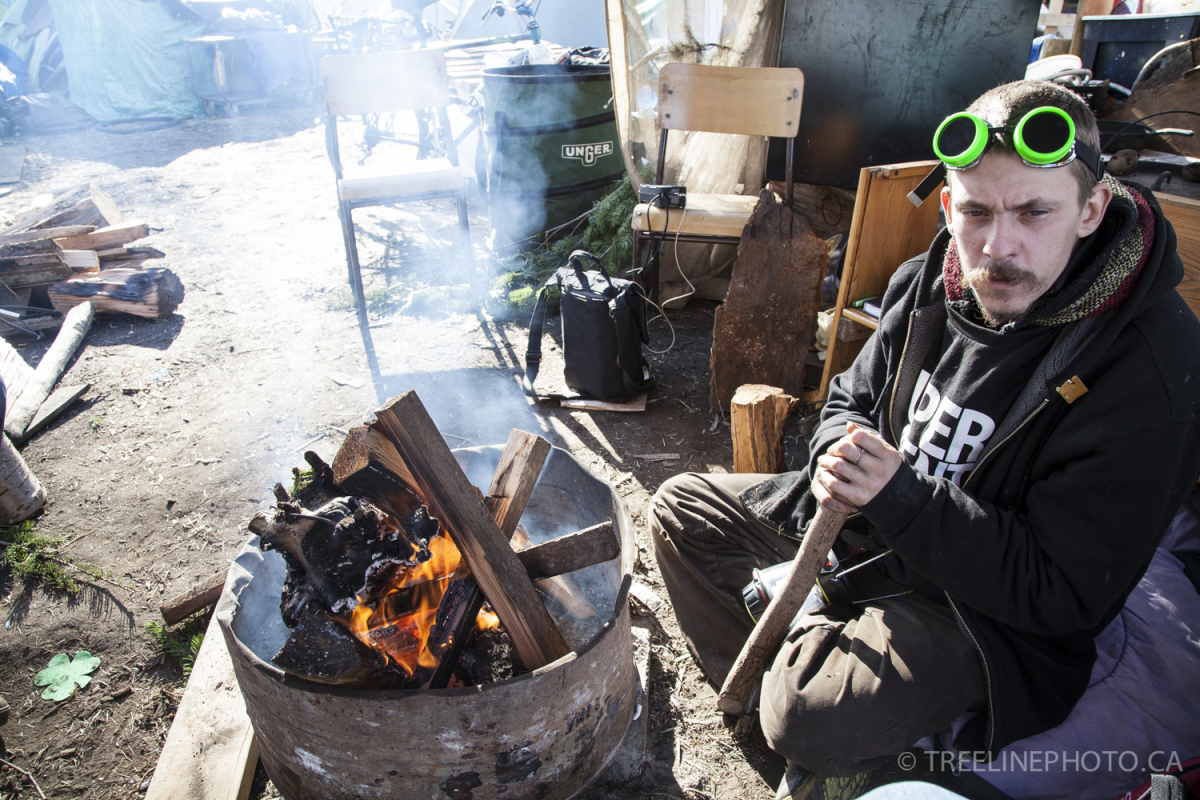Like this article? rabble is reader-supported journalism. Chip in to keep stories like these coming.
Right now in Victoria, British Columbia over 100 individuals have created a community on the courthouse lawn. It’s a community like most others — except, everyone is homeless.
You may have heard about the community in the news: that it’s full of crime, a safety hazard, or perhaps that it’s a costly nuisance to the neighbourhood. You may have read news stories that portray the tent city through a lens of contempt and stigma. But this isn’t the real story.
We want to turn your attention to the human reality in that camp because these are people with lives, stories, families and rights. They are not simply a nuisance to be brushed aside.
Homelessness is not going away anytime soon. On any given night in 2016 over 1,000 people in Victoria are forced to turn to temporary or emergency shelters. Every day, too many women, children and men are turned away from shelters, usually because facilities are full.
And there is a continued lack of action by B.C. to make any change. B.C. is the only province or territory in Canada that has not taken concrete steps toward a poverty-reduction strategy. The provincial emergency shelter program funds only 147 year-round emergency shelter beds in Victoria. An additional 110 seasonal spots are available on winter night — these spots are generally mats on a floor in a communal space. The reality is that hundreds of people every year have no choice but to seek shelter in parks and public spaces, an act for which they are harassed, displaced and even ticketed.
Even if you’ve never experienced homelessness first hand, surely you can imagine what it’s like to be denied the right to occupy public space, to be told your existence is a nuisance to others.
This is the context for the creation of the Super InTent City community — a space where campers say they feel respected, where they are safe, where they don’t need to carry around their worldly belongings all day or line up for limited temporary shelter spots every night.
But there’s a court decision that could change everything.
On April 6, 2016 the Chief Justice of the B.C. Supreme Court denied an injunction to remove the community and disperse Super InTent City. Now, the B.C. Government has again sought an injunction to displace the camp. This means that despite a future trial date set for September, which would determine the final future of the camp, the government may attempt to jump the gun and evict the community sooner.
It is not overstating to say that the legal decision that will follow this injunction will have serious consequences for homeless people in Canada and their human rights.
Homelessness is a violation of human rights. Like the right to freedom of speech or freedom of assembly, this is fundamentally a human rights issue. Canada has signed international treaties that legally require all levels of government (including the Government of B.C.) to ensure all persons have an adequate standard of living and live in dignity.
In reality, the act of not displacing the camp is the absolute bare minimum that the government could do to fulfill its human rights obligations to ensure that all people in the province are free of homelessness. This will take more than a piecemeal approach to opening temporary shelter spaces or an ad hoc provision of a few new units of housing — it will take a coordinated, dedicated and properly funded strategy to provide tens of thousands of new social housing units per year until this crisis is abated.
For a nation bidding for a seat on the United Nations Security Council, you’d think Canadian governments would take our obligations more seriously. It’s so visible — this violation of human rights is so obvious. In one fell swoop, over 100 marginalized individuals may be evicted en masse. With inadequate shelter options and an almost zero per cent vacancy rate, they will again be forced to seek shelter in other public spaces — demoralized and robbed of dignity.
So, what will it take for us to stop blaming those who are homeless and turn our attention to the real problem: the government’s failure to take real, rights-based actions to end homelessness long term?
Michèle Biss is the Legal Education and Outreach Coordinator at Canada Without Poverty. DJ Larkin is a Housing Justice Lawyer at Pivot Legal Society.
This article was originally published in the Victoria Times Colonist.
Like this article? rabble is reader-supported journalism. Chip in to keep stories like these coming.
Image: IntentCity.ca



